One of the most important lessons I have learned throughout my quite long life as an explorer is this; Do not believe everything you read. Judge with your own eyes. I have seen this reality in for example in Yemen, Russia and Nicaragua. To take only three examples of countries that have been portrayed, in many ways, wrongly in Western media. It makes me sad, because too many people believe what they read without another thought. Therefore, one of my goals of my exploring life is to try to give a perspective. Give another view of a country that the Western media far too often only portray negatively for mere political gains and other obscure reasons. For this reason I have lately become very interested in North Korea. And right now I am involving myself in deep research and I have asked one of my friends, Andrea Lee, who knows this country well, to give us all a perspective to begin with!
North Korea; A Perspective
By
Andrea Lee
I spent four years at law school holding down a job during the day and going to classes at night. After graduation, I worked as a corporate attorney at two of New York’s biggest law firms. I had worked hard and achieved what I set my mind to do. I thought I was set. But my dad would call me every other day to ask me to help out with the North Korea tour business he had started. I had a full time job and he wanted me to book tickets, write itineraries, deal with clients and a whole host of other tasks. And to North Korea on top of that! Are you kidding? Turns out my dad had real vision.
As my law career progressed, I came to the slow (but common) realization that life behind a desk was not for me. As luck would have it, the DPRK tour business had grown to a critical point and was large enough to warrant my full-time attention. Now, after several years and over 50 trips to North Korea, I am CEO of Uri Tours, and the experience has been completely amazing. I’ve helped nearly 1,000 Americans see the DPRK for themselves, including Dennis Rodman and Eric Schmidt. Every day presents new challenges and triumphs, and I’ve gained unique insight into both myself and one of the most closed and least understood countries on Earth.
As an American, I sometimes catch flack for taking people to the DPRK. Tensions between our countries are high, and people have legitimate questions about whether it’s safe or moral to travel to the DPRK. I too carried with me all of the typical western notions when I first set foot in Pyongyang in 2003. But 10 years of travel and business in the DPRK have convinced me that cultural contact is immensely important for fostering reconciliation and understanding between the DPRK and the international community.
Many people travel to the DPRK for the novelty. It’s sensational, it’s scary, it’s hip. Sure, you’ll definitely get cool points for shooting a pheasant at the Pyongyang gun range (and having your hotel prepare it for you the next day), but no matter what your reasons for going, most people come back valuing their DPRK experience because of the sheer awesomeness of the North Korean people. Years of hardship have forged North Koreans into a warm and rugged people with uncommon kindness and concern for their fellow man. These are the people whose stories are lost behind the politics and government posturing that we read about in the news, and they are the reason that many, including myself, return to the DPRK again and again. When Mikael asked me to write a piece for his blog, he said, “Write from the heart.” So I’ll just share a couple of memories that have stayed with me over time. I hope they help give you a better picture of the DPRK than you may have had before.
I once had a young female North Korean tour guide ask me if girls in the States get plastic surgery done. When I responded, “not so much in the States, but more so in South Korea,” she said that it’s not common in her country but she really hates the arch in her nose. I was shocked. She was super-stylish with strappy dress boots, a short skirt and a sleek, fur-trimmed jacket. As far as the men on the tour were concerned, she was all glitter and cotton candy and could do no wrong. We were worlds apart, but her question showed me that all of us women might look into the mirror from time to time and see potential for a nip here or a tuck there. When you conduct research on traveling to the DPRK, you’ll often hear North Korean tour guides referred to as “minders” or “spies” or even “actors.” While these labels may reflect the restricted nature of DPRK travel, they certainly do not paint a complete picture. I’ve gotten to know our guides over the years and they’re everyday people with everyday worries. Little moments like this one in which we share a laugh or reveal our little insecurities are moments that we carry with us, and I encourage all of my clients to seek out these moments when they’re traveling in the DPRK.
Won’t They Kill You?
Most foreigners who have visited the DPRK have stayed at the Yanggakdo Hotel. It has about 47 stories with a rotating bar and restaurant at the top. One night, I was at the bar a little after closing time with a couple of friends. One of the waitresses had her kids with her and they were having a good time running around the empty bar. At some point I said hi to them in Korean. Being kids, they didn’t have any problems asking pointed questions: “You speak Korean?” “Yes.” “You’re Korean?” “Yes.” “But you are from America?” “Yes.” “But won’t they kill you?”
I translated for my friends and we all had a good laugh. I told the kids that there are plenty of Americans who are also Korean and that nobody was killing us. I know some people might read this and shake their heads saying, “This is the propaganda that they get in North Korea?” But the irony for me is that I get at least two calls every week from Americans asking the opposite question: “Isn’t it too dangerous to travel to the DPRK?”
Needless to say there is ample propaganda on both sides. We’ve never had a safety issue on any of our trips. In fact, I’ve had people tell me that they felt safer in the DPRK than they did in France! The only way to have a truly informed opinion is to go there yourself. Fear keeps us from doing many things, but we’re lucky enough to live in a country that encourages us to travel. We shouldn’t take that freedom for granted by sitting at home and taking what we hear at face value.
Respecting Our Elders
As a Korean American, I share a cultural heritage with North Koreans (though my family is from the South). We all eat kimchi and drink soju and we all speak the same language. I’m proud that Uri Tours is the only DPRK tour operator that’s run by a person of Korean descent (also the only one run by a woman). Having this cultural connection helps me give my clients a more informed experience.
On one occasion, one of our older tourists wanted to sit in the back of the bus to get a better view for taking pictures. Our Korean guide insisted she sit in the front, and I could tell our tourist was suspicious that our guides were trying to thwart her desires to take good pictures. When I asked our guide in Korean why he insisted on the woman sitting in the front, he said that it was because the front of the bus would afford a less bumpy ride. When I explained this to our tourist, she immediately understood and said that it was nice to be in a country where elders get so much respect. This, of course, was another very Korean value that I understood well. In the end, we resolved that she would sit in the back as she originally requested. Without proper cultural mediation, situations like these can often lead to misunderstandings that make the trip less enjoyable.
Funny Looks
At this point, I’m used to getting plenty of funny looks when I tell people what I do. But then again I got funny looks when I told people I was leaving my cushy job at the law firm. I get funny looks from people when I’m cruising down the PIP in North Jersey on my 2009 Ducati Monster (a nice girl on a bad bike ;). I got funny looks from my friends when I told them about Zen Buddhism which I had studied for a summer in Seoul. Sometimes it doesn’t feel like it, but I realize that I do buck some trends. Honestly, I think we all should buck the trend and open our minds to new and exciting experiences. Of course, since the world’s adventurers follow this blog, I might be preaching to the choir. Either way, I hope to see you soon in the DPRK!
Andrea Lee is CEO of Uri Tours an American provider of tours and travel services to the DPRK.
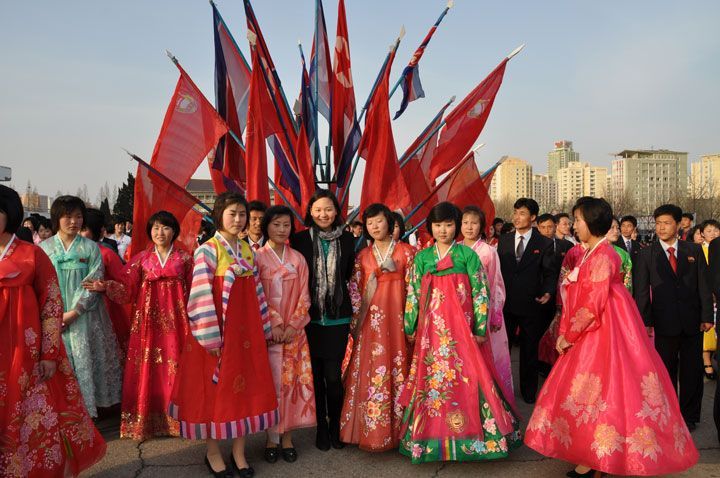
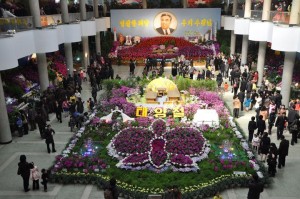
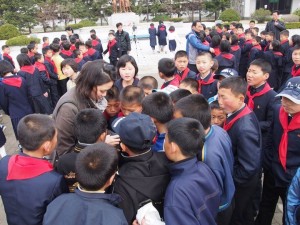
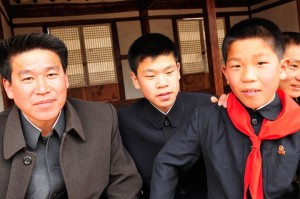
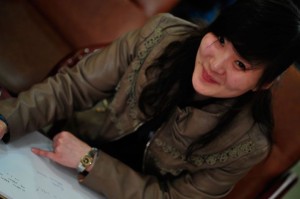
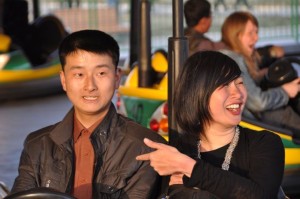
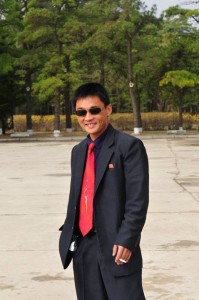
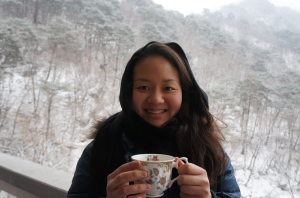


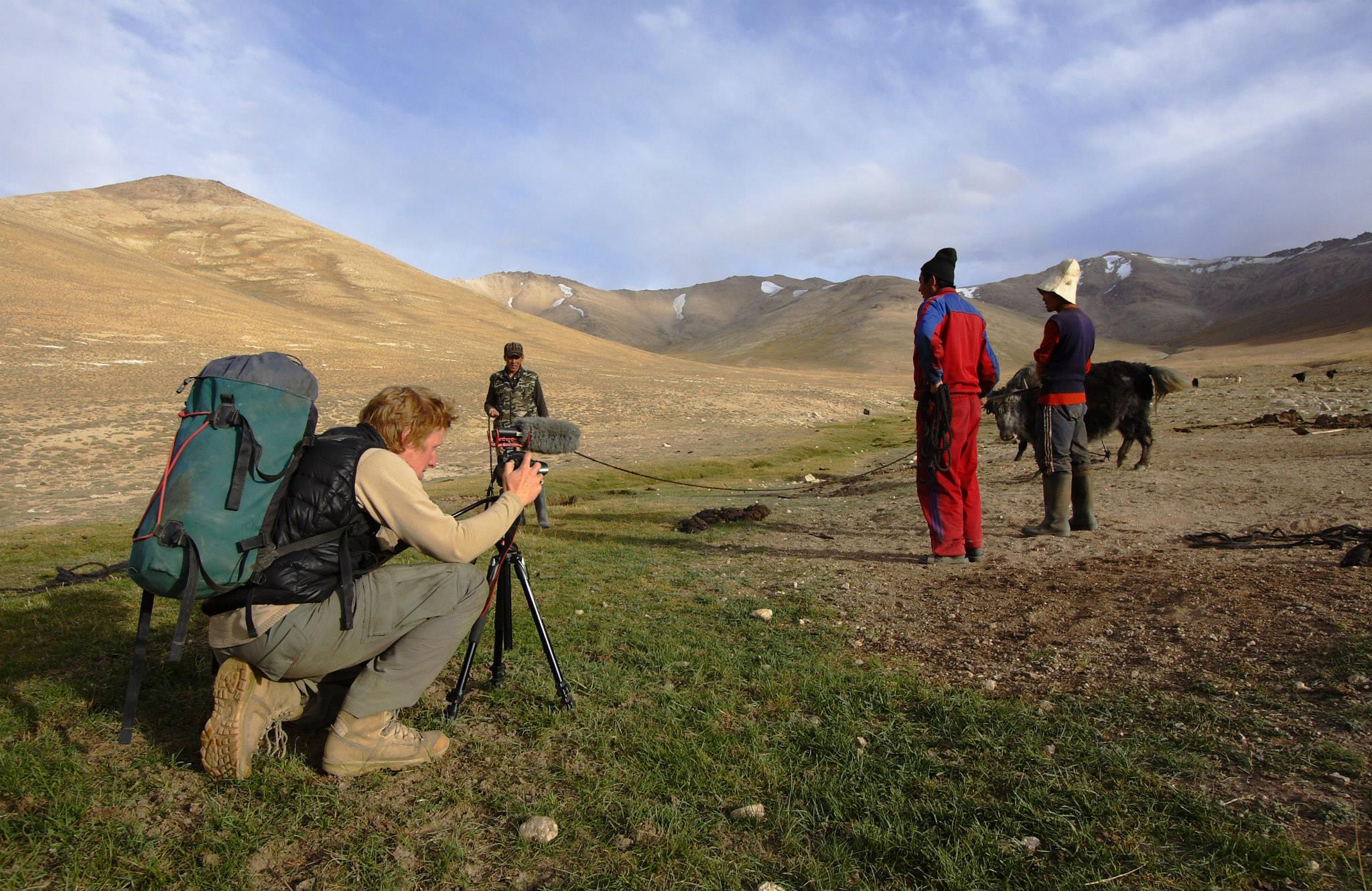
Very nice. It truly reflects the real position. Often Governments only fight, People are mature and desire peace.
A bit commercial and perhaps a bit naive?
The current North Korean demigod and governmental agents are grateful for such fluff pieces, while those who have been imprisoned, tortured, and killed for their non-obedience to the state religion while under the boot of the three dictators who have demanded and inculcated worship of themselves since the Korean Conflict…maybe not so much.
Hi everyone! Thanks for all of the comments and for taking the time to read. I’m the author of the piece and I can speak to some of your comments. This piece is not meant to address all aspects of North Korean society. It is a multi-faceted society, with the good, bad and the ugly, and I am not an expert on the complete story. I am here to talk about the good people I’ve met along the way and to share some of my personal stories. North Korea has a fascinating history and a culture that spans centuries, so it’s always quite a trip. But the people is what keeps me going back. It’s a place you need to see for yourself, and more than once, to start to grasp what life is like in the DPRK.
I have never been to North Korea so I have no basis for credible opinion but here you have got eyewitness (Ahn Chol’s) testimony(full English version was blocked few days ago but people starve and die in the same way no matter in what language you make a comment for this): https://www.youtube.com/watch?v=5g4NSXVlv5k
So Ewa Sęk , do you find it wrong to publish an article who highlights some positive issues with DPRK?
Would it be wrong to have written a nice positive article about Nazi Germany from 1937 to 1945? About Mao’s China during the “Cultural Revolution”? About the wonders of Manchuria during Japan’s overlord era? Those regimes and those settings are analogous to North Korea’s behind the scenes reality.
Well, the idea about publishing articles is to get opinions and i am, and I thank you for that. I don´t think anyone is denying that there´s two sides too everything, but have you ever, before this article by Andrea Lee read anything positive about the DPRK? I haven´t. Having said that i am not disagreeing with your opinions, but I haven´t been there myself and have for this reason no idea about either. But I hope that i one day will. But generally i am against having opinions about other countries not having witnessed it myself in our present time. This is my personal view. Having said that I don´t mind others having opinions about any topic. Opinions are important, intellectually challenging and healthy. Even if they´re not based on personal experience, but on the experiences of others. So keep them coming. I have always been called naive and gullible. I don´t mind that at all. I am. I can´t do much about that. And Andrea puts positive emphasis on the people she meets, not the regime. She is not highlighting the regime, neither am I. This is not a political article. This is important to understand. The world isn´t only about politics. At least not for me and Andrea.
of course not, but denying that there are two sides of that coin is a completely different story
Good points, Mikael.
“Do not believe everything you read” “portrayed, in many ways, wrongly in Western media” in my opinion do imply that there is only one side of this coin and the other one is implied indirectly to be the false, manipulated one. If not, what do they actually suggest? – but on the other side I admit that these are words from the introduction to the article, not from the Andrea Lee’s article itself. In the article you describe one women who make plastic surgery of her nose when millions of other people around her are starving to death and sell on the markets not make up cosmetics but human meat. You describe those people as a nice, friendly people, but in the same time they seem do not care about the misery of others but about the look of their nose. You describe child asking questions about killing. The point is not who they aim as an aggressor in those statements but why small children ask such questions. If they were growing up in the peaceful, idyllic country they random thoughts wouldn’t be about killing for sure. You write that people feel safe during trips. What about citizens of that country? You do not openly deny that article describes only one point of view for that country but there are no single statement about the serious problems most of the citizens of that country have to face every day. There are only those few words: “they certainly do not paint a complete picture”. You claim that it is due to the fact that it is article not concerning political issues, but how can you part those dimensions? Now we are not going to talk about sad aspects and try not to see what happens around us because we want to have a nice trip. In the comments above you use word ‘lately’ with question mark. Do you suggest that something might have changed (‘lately’)? How it is possible since there is no industry, no agriculture – everything ruined and not working. If you don’t want talk about that problems, who should care since even citizens (or nearly citizens – people who claim themselves to be Korean) neglect those problems, and describe it to be exaggerated. For me it’s not a different view, it’s not focus only on touristic or just positive aspects. It’s an incomplete view, hiding huge suffering of the most part of the citizens of that country.
This is John Dantzler-Wolfe, COO of Uri Tours
I think that all of the comments here have been very excellent and thoughtful. However, there is a tendency to think that any article about the DPRK that does not mention gulags or starvation is somehow less legitimate or naive. Correspondingly, there is a tendency by many western travelers to even dismiss every single person they meet in the DPRK as not representing the “real” DPRK if they appear healthy, well fed or if they have anything at all positive or prideful to say about their own country. Believe me, there are many ordinary DPRK citizens who are well aware of the complex problems in their own country and the nature of the government that rules them. But you will also find that knowledge coupled with a feeling of deep duty towards their countrymen and a resentment of what can easily be perceived as western arrogance. The point of my piece is to highlight the fact that there are plenty of DPRK citizens whose everyday lives are just as important to them as ours feel to us. When the global media has a never ending focus on the country’s problems, the rest of us will absolutely forget about these people. We cannot claim to care for the people of the DPRK or for humanitarianism and also embrace a position of further isolation. Refusing to share our culture with the DPRK or refusing to acknowledge that the people of the DPRK do have a culture and a perspective separate from their government is just as bad as ignoring the humanitarian issues plaguing the peninsula. Because almost every article that you read about the DPRK focuses solely on those humanitarian issues and the nature of the current regime, I would like to think that a piece focusing solely on everyday people of the DPRK does not tip the balance or necessarily constitute “ignoring the problem.” It is very easy to find information on the problems. Much harder to find information on the people. I don’t think that should be the case.
“Andrea’s piece” not “my piece”
I think it’s good that Korean-Americans such as Ms. Lee take the trouble to try and live and work in North Korea to try and foster mutual understanding…..but, be aware that it is a totalitarian state and might use her and her work for propaganda purposes.
Very good article and I agree with what Mikael and John Dantzler-Wolfe wrote about it. I have noticed the arrogant attitude of many Westerners to other nations and criticizing them for human violation though their own countries are know for such violations and still commit them in other countries. I think it´s perhaps the fault of the schools and media in those countries not informing about the negative side of their own nations.
I have never been to North Korea but would like to go there sometime.
Very good article and I agree with what Mikael and John Dantzler-Wolfe wrote about it. I have noticed the arrogant attitude of many Westerners to other nations and criticizing them for human violation though their own countries are know for such violations and still commit them in other countries. I think it´s perhaps the fault of the schools and media in those countries not informing about the negative side of their own nations. I have never been to North Korea but would like to go there sometime.
Kristjan H Kristjanssonan: you have a good point–those who live in glass houses should not throw stones–agreed. Americans should not criticize others for human rights violations when we still have Guantánamo Bay. However, it is also a matter of degree: while Western countries *do* commit human rights violations, we do not run a 24/7 police state where the slightest criticism of of the gov’t will land you in the gulag. North Korea is a totalitarian police state where there is *no* freedom of thought or expression and the gov’t steals foreign aid food supplies meant for the people and millions starved in the 1990s. So we need keep things in perspective when we compare countries so different–it’s like comparing apples and oranges.
Beside death penalties and torture, the US government is infamous for the support of totalitarian police states where “the slightest criticism of of the gov’t will land you in the gulag.”
Again: I agree we should *not* support totalitarian regimes–right wing or left wing. However, that does not mean US = North Korea/Syria. It just means we’re hypocritical.
6 hours. I might remind you also that the US and Europe are where people *from* totalitarian societies flee *to*, not the other way around, so that should tell you something…….
Bashar Hafez al-Assad says that he is fighting insurgents and terrorists like the US government is doing in the countries they have invaded. Such groups have been compared to resitance forces e.g. in Denmark and France in the World War II. People have escaped e.g. to Denmark from countries which the US have invaded or supported human right violations in, e.g. Chile.
I guess no matter how much I agree with you, you’re still not happy. Let me try this again: it is true that during the Cold War, many right wing totalitarian regimes used our ‘war on Communism’ to justify *their* attempts to eliminate domestic opposition, ie: Chile, El Salvador, etc. Now, regimes like Assad’s are doing something similar by branding *all* opposition ‘terrorists,’ even when they are not terrorists, but simply ‘opposition.’ That is not good. I am *against* many of the justifications used by the US and other countries in the name of ‘combating terrorism.’ We in the US have lost many civil liberties via the so-called ‘Patriot Act,’ which allows the US Gov’t to spy on Americans domestically *and* abroad with no due process or legal warrants. Having said all that, I *still* disagree with those who say that the US Gov’t is somehow the ‘moral equivalent’ of truly nasty regimes such as North Korea and Syria–because it’s simply NOT true–as I said before, it’s like comparing apples and oranges–they are not equivalent.
I am a very happy person who likes apples and oranges
Not only did “many right wing totalitarian regimes used our ‘war on Communism’ to justify *their* attempts to eliminate domestic opposition” but the CIA and the School of the Americas took big parts in it. I traveled around the south part of South America, where their involvment is well known and the reason for hostilty towards the US today. The US goverment has supported nasty regimes so they are equivalent. – We can probably agree that Americans should not critized other nations because of their own history and behavoir today.
Hi Guys, i am doing profpund research now and what I read is quite…surprising and scary. If you two have time, an hour to spend, see this interview with Bruce Cumings at http://www.youtube.com/watch?v=ba3dgDUtE9A
It will give you perspective. For me, this is a whole new world of information i really had no idea about.